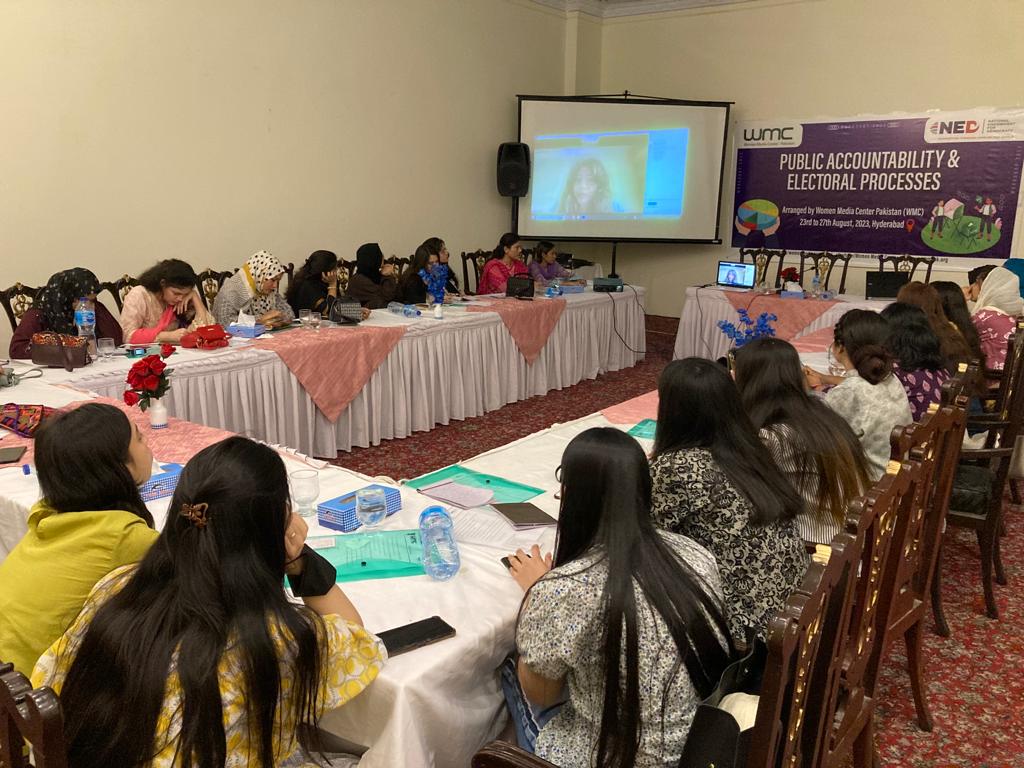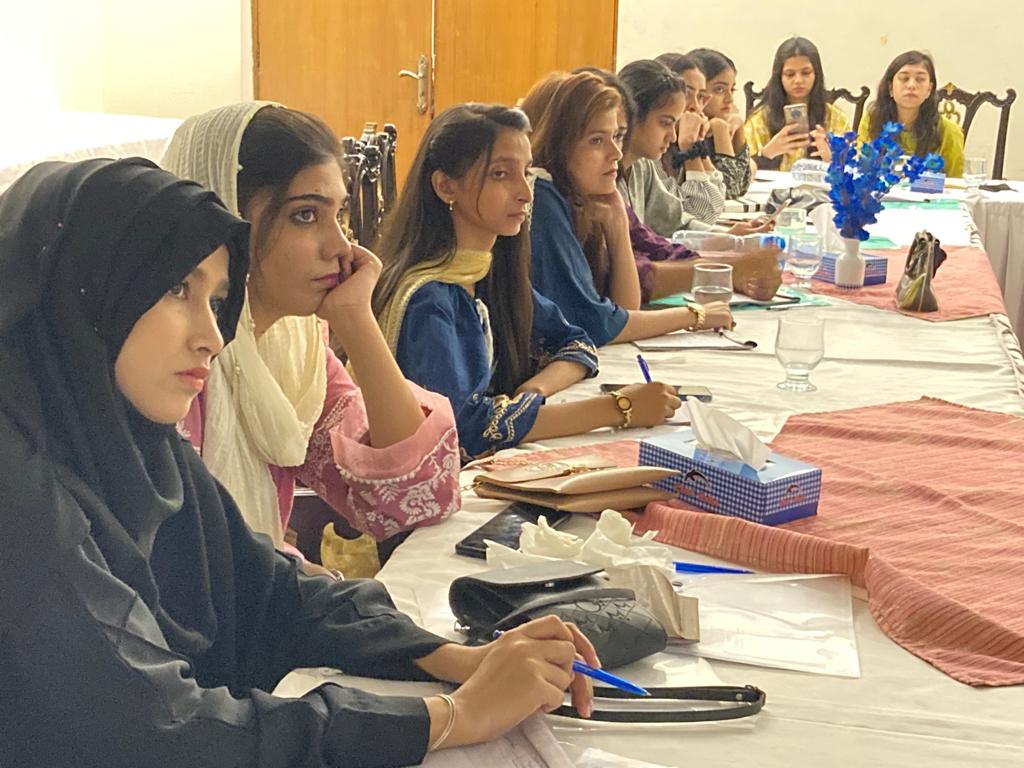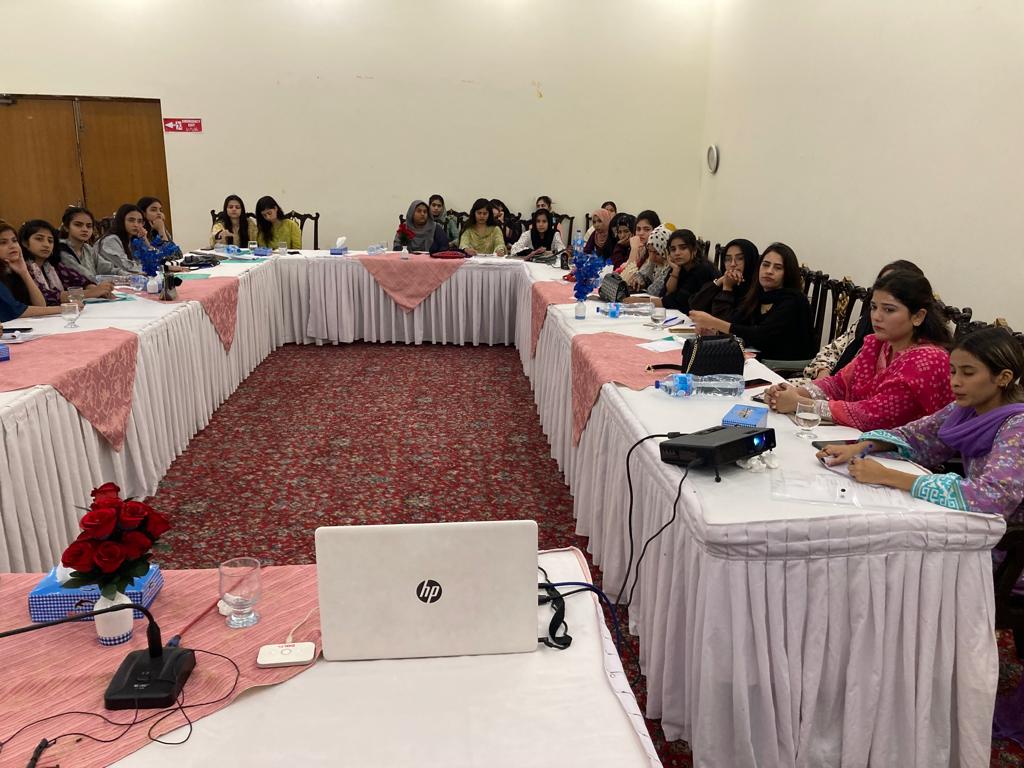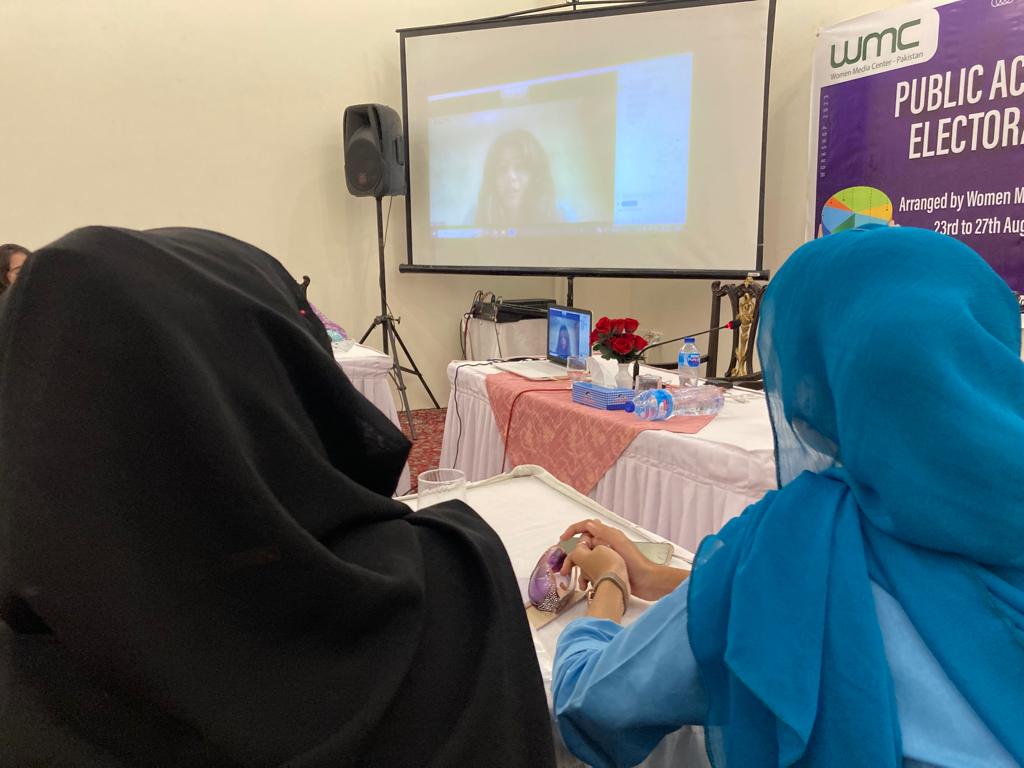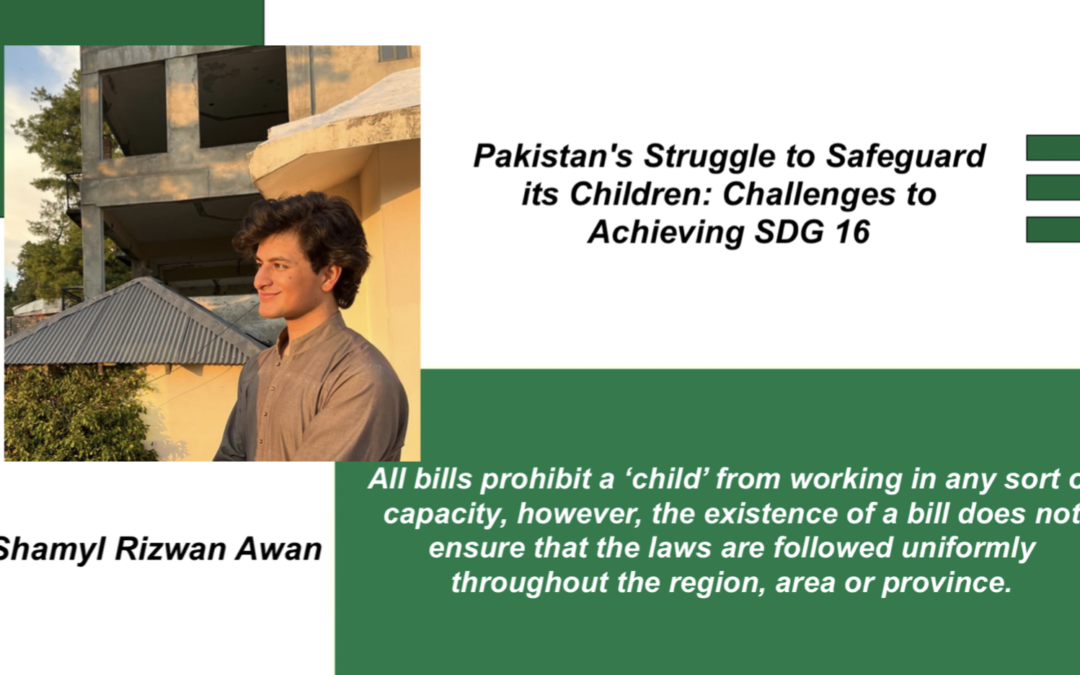
Pakistan’s Struggle to Safeguard its Children: Challenges to Achieving SDG 16
Sustainable Development Goal 16 (SDG 16) is titled “Peace, Justice and Strong Institutions.” This goal is pertinent to achieving Agenda 2030 laid down by the United Nations for Sustainable Development. This goal aims at strengthening human rights and reducing...
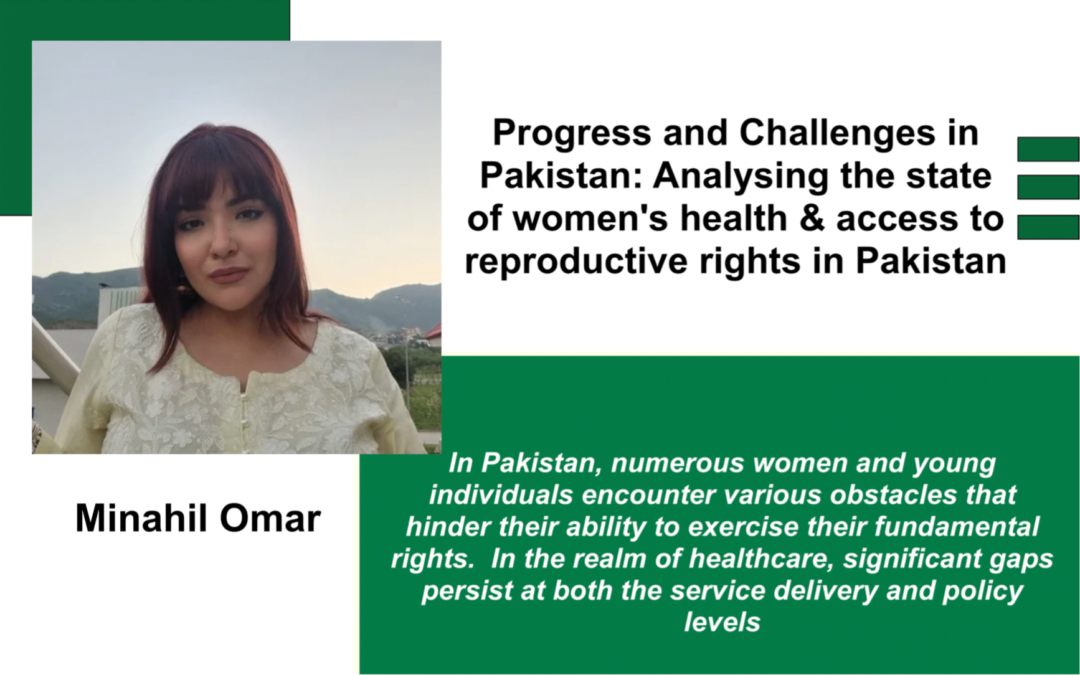
Progress and Challenges in Pakistan: Analysing the state of women’s health and access to reproductive rights in Pakistan.
Sustainable Development Goal 5 (SDG 5) is a crucial component of meeting the 2030 Agenda for Sustainable Development, devised by the United Nations. The fifth SDG is dedicated to the pursuit of gender equality and empowerment of women and girls....
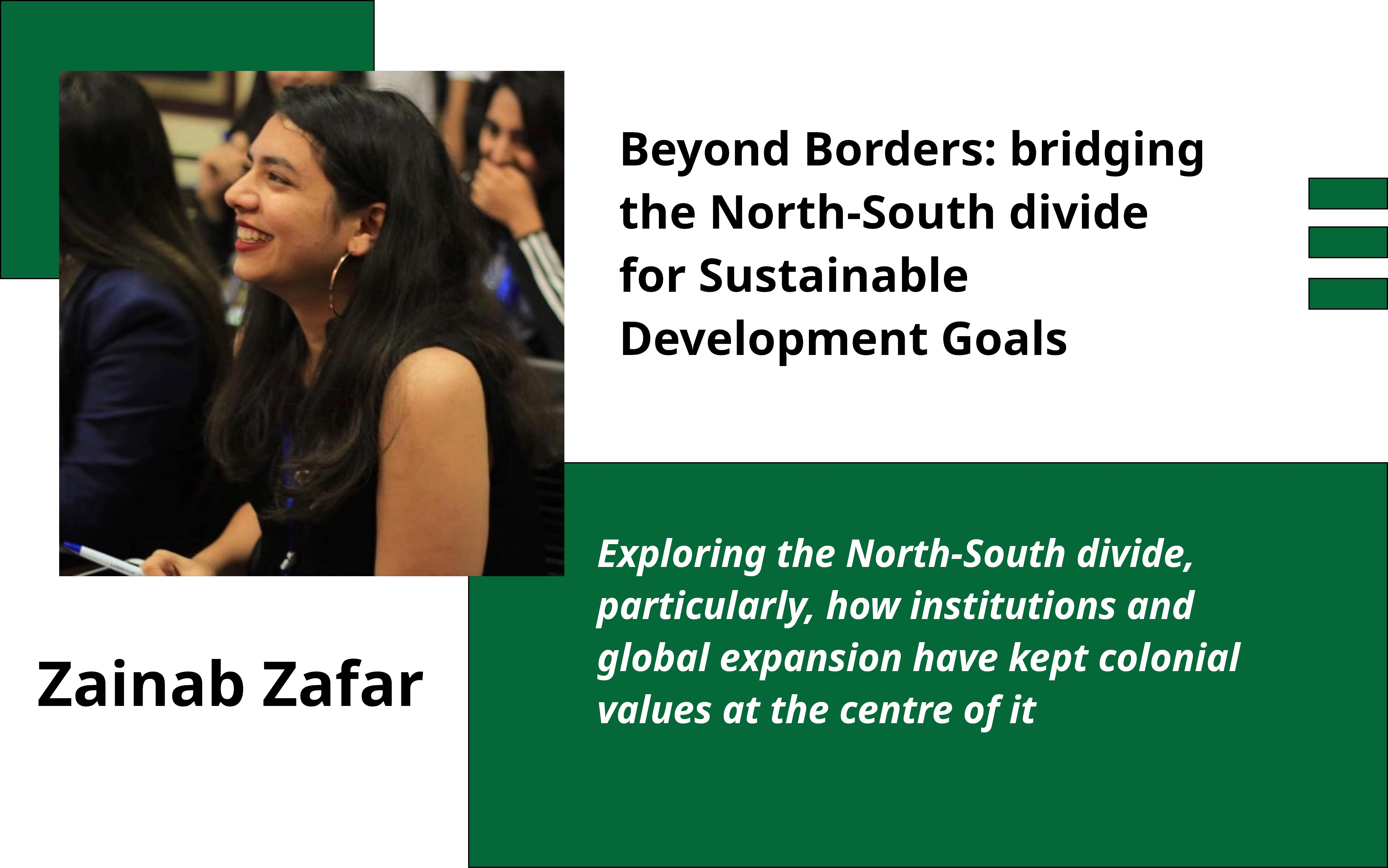
Beyond Borders: bridging the North-South divide for Sustainable Development Goals
Exploring the North-South divide, particularly, how institutions and global expansion have kept colonial values at the centre of it. Institutions and global expansion have always kept colonial ideologies at the heart of it. Exploring the North-South divide and its impact on achieving the Sustainable Development Goals there is a need to address the control of knowledge, resource and vulnerable position of the South that is often exploited.
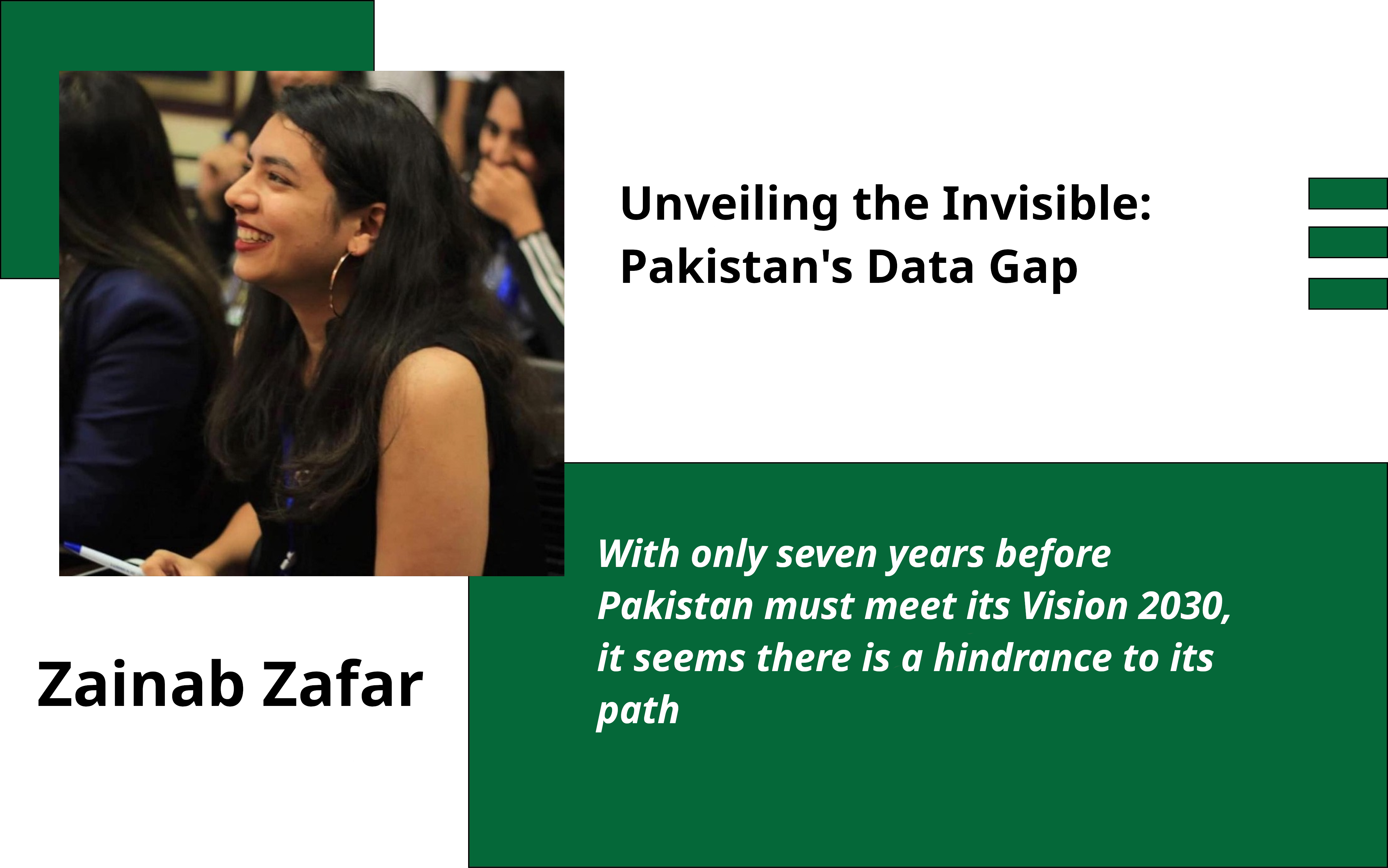
Unveiling the Invisible: Pakistan’s Data Gap
With only seven years before Pakistan must meet its Vision 2030, it seems there is a hindrance to its path. Achieving the Sustainable Development Goals (SDGs) requires reliable data that is not only gender inclusive but accounts for other marginalized groups to be included to create holistic solutions to the country’s growing problems. Currently, Pakistan ranks at 128/166 to achieve the SDGs.
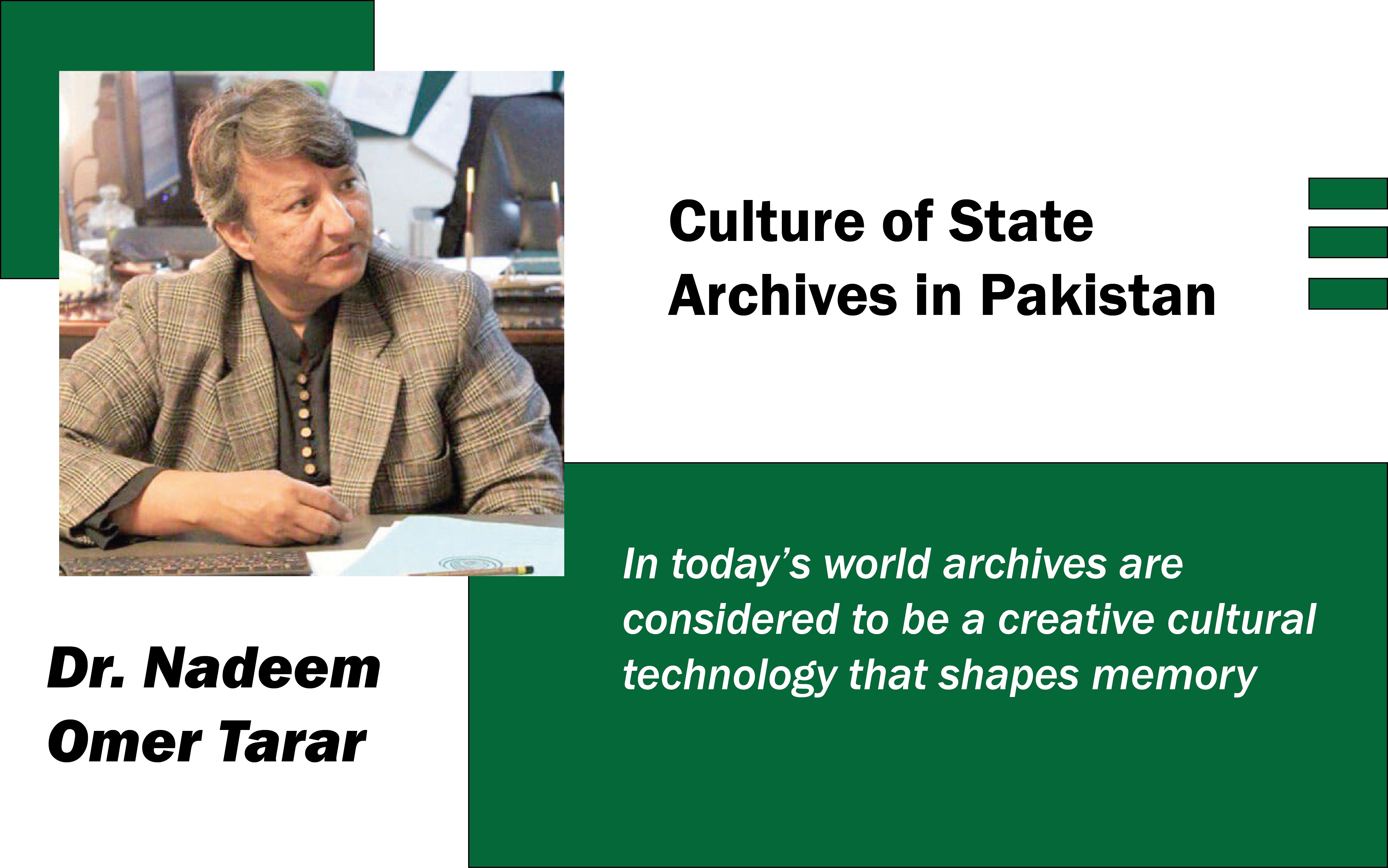
Culture of State Archives in Pakistan
In today’s world archives are considered to be a creative cultural technology that shapes memory Culture of State Archives in Pakistan Dr. Nadeem Omer Tarar Archives as an institution of the modern state has predated the British colonial state in South Asia. The...

